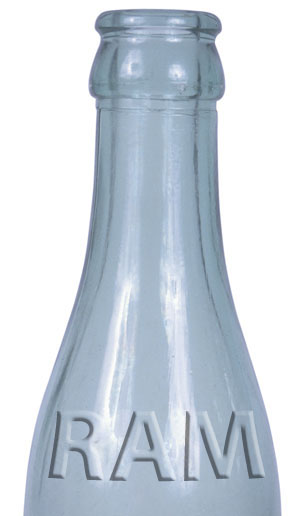Memory Upgrade: Is It Time To Add More RAM?
The price of memory upgrades is at an all-time low. And more memory is always better, right? We decided to analyze whether or not now could be the time for a fat memory upgrade. As it turns out, there are arguments for and against backing up the truck.
Get Tom's Hardware's best news and in-depth reviews, straight to your inbox.
You are now subscribed
Your newsletter sign-up was successful
Summary And Recommendations
Concluding Remarks
It's rarely this hard to give a clear assessment. The facets of various memory issues are too extensive and vary widely depending on each user and his or her relevant applications. Interestingly, certain 32-bit programs in 32-bit environments with 4 GB of RAM installed will benefit more from going to 8 GB (or higher) than some 64-bit applications in 64-bit environments. As a side benefit, this approach closes the annoying gap between the 4 GB of installed RAM and the 3.25 GB usable by 32-bit Windows.
We tried to illustrate years ago why not all performance improvements can be shown simply in terms of frames per second. This is why our conclusion departs slightly from what you might expect only from looking at graphs. We based this conclusion on our objective measurements with subjective impressions included, just as we highlighted the benefits of a RAM disk for temporary files.
Conclusion and Recommendation
Based on our measurements and impressions (and taking falling prices into account), we thoroughly recommend a minimum RAM size of 8 GB. Using 12 or 16 GB only makes sense if you're planning on using 4 GB of more of this higher amount as a RAM disk, helping accelerate the reading and writing of temporary files. This applies equally to file compression, video encoding, and heavy image editing.
Other than this, you might want more RAM so the graphics card can allocate more system memory for its own use. We saw this pay dividends in GTA IV, for example. You won't see an overwhelming performance increase unless you're using very memory-hungry programs, but you will get a system with enough RAM for the foreseeable future.
Given our observations and low prices on memory upgrades, this is the time to hunt down a high-capacity memory kit for your system. In the end, it’s never wrong to make a step knowing that it will improve performance and provide some reserves.
Get Tom's Hardware's best news and in-depth reviews, straight to your inbox.
Current page: Summary And Recommendations
Prev Page 64-Bit: Benchmarks With 4 GB To 16 GB
Igor Wallossek wrote a wide variety of hardware articles for Tom's Hardware, with a strong focus on technical analysis and in-depth reviews. His contributions have spanned a broad spectrum of PC components, including GPUs, CPUs, workstations, and PC builds. His insightful articles provide readers with detailed knowledge to make informed decisions in the ever-evolving tech landscape
-
doyletdude Hmmm... i'm concerned because i use triple channel so i'm currently at 6gb, which is under recommendation however to upgrade to 12gb might be to much, especially since i've heard that using more RAM slots negativley affects overclocking stability.Reply -
hmp_goose I, too, run an X58 chipset, with Win7-64, and don't know what this article is telling me . . .Reply -
holygigi Finally a good read on Tom's, not a news about a rumor that a fruit company might provide a tease about something shiny.Reply
I use 8GB for about 2 years now, the best thing about it (and I didnt find this covered in the article) is that alt+tab-ing out from a game to windows and back to the game is almost instant. Even the hungriest game uses about 3-3.5 GB. Windows again about 2.5. So you always have 2GB free. Even though I dont have a SSD yet, after the initial slower start of an app (browser, anything), going back to it is instant. For me this is the real benefit of having more ram. The marginal (if any) FPS increase is not the main selling point. Multi-tasking is. -
takeapieandrun Personally, I would say 6GB is nice balance between capacity and cost. 4GB of RAM can become limited at times, but IMO 8GB is a little too much.Reply -
dogman_1234 Nice article. I finally learned something i can be able to use later in my computing life.Reply
My questions are as followed:
1) I am aware SSD's are a applied RAM set. So how can one use your system RAM to store files after shutdown as well.
2) How can one add more memory to the GPU? I can see a noticeable jump in GPU RAM, or GMP as they put it. -
coffee_man i use triple channel but i only got 3 gb of ram, is better to add more ram or buy an ssd ?Reply -
Niva Come on guys, the article and recommendation are pretty straight forward. They're recommending a minimum of 8 Gb and if you have less you might want to consider upgrading.Reply
That being said, if all you do is interwebs and some gaming you should be careful where you spend your money. Big ram is for programs that use a lot of ram, if you're doing heavy 3d modeling/animation, large photoshop files now that CS5 actually has 64 bit products it's justified. For games it's a crapshoot.
I say stay with 6 Gb unless you see your ram usage over 50% regualrly. -
quizzical So basically, the conclusion is that slow hard drives are slow, which really doesn't say anything about system memory. What happens if you try running the programs off of a good SSD? Having an SSD in your system, but not putting any programs or even the swap file on it seems like a rather strange configuration.Reply
